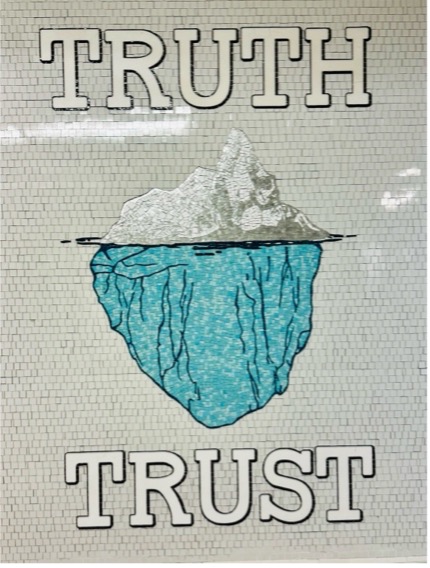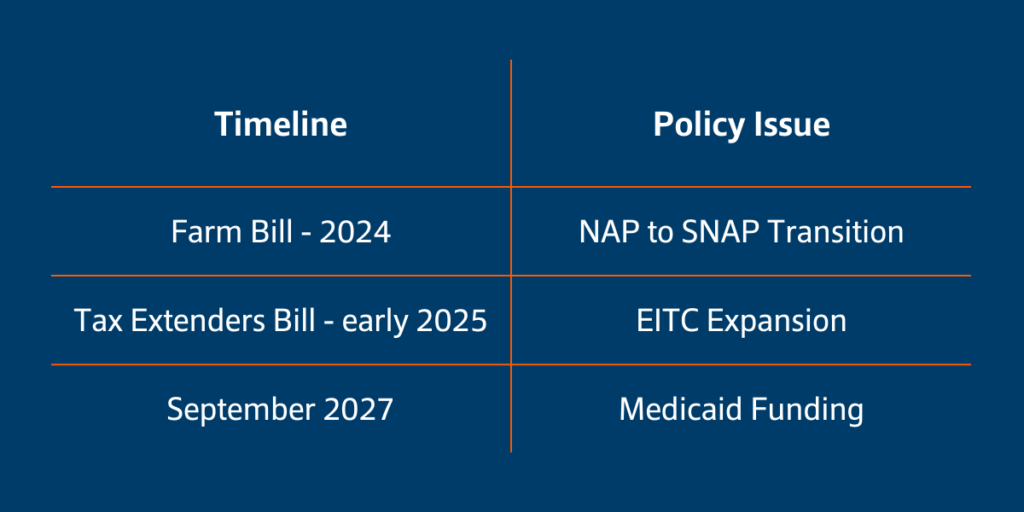A brief note from yours truly:
I’m back! During the last two years, I served Puerto Rico from within the U.S. federal government. I carried the work with a sense of pride and deep responsibility. It was the first Administration to appoint Senior Advisors across federal agencies to look out for Puerto Rico specifically. And I was one of them. Our collective efforts have undeniably ensured great strides in the Puerto Rico policy arena. Undoubtedly, as a wise Congresswoman once told me: “we have matured politically and are better prepared to flex our muscles to get attention”.
During my time at the U.S. Department of Housing and Urban Development (HUD), I worked tirelessly to ensure there was a recognition and deeper understanding of how historical circumstances, program shortcomings and cultural differences have resulted in an uneven playing field for Puerto Rico – and all U.S. territories. While it’s been tough at times to tackle the deeply entrenched inadequacies, I’m proud of the progress we’ve made and the lessons we’ve learned. I remain hopeful that one day every federal agency will have dedicated personnel working to correct the many historical wrongs.
The Center for a New Economy’s (CNE) mission in DC is clear: shape and inform debates around Puerto Rico and put serious research and policy recommendations directly into the hands of decision-makers. But we are facing many challenges in doing this work. The political environment in Washington, DC has become increasingly contentious. For the most part, opposition to policy solutions stems from ideological stances rather than empirical evidence. Instead of fostering unity, it’s looking far more like the Divided States of America. For Puerto Rico policymaking, it’s a stark dichotomy: either in favor of supporting its needs or you’re vehemently opposed to it.
At times, we find ourselves addressing urgent issues before even having the chance to propose solutions. Even now, after more than five years of laying the groundwork for Puerto Rico’s transition to SNAP, we’re faced with a proposal that not only denies access to SNAP but also slashes $700M from our existing program.

In the real world, challenges run even deeper. Before misinformation was widely promoted by social media and all the “clicks”, there was a whole effort to challenge knowledge altogether – to in fact, create ignorance: “via advertising, duplicitous press releases, funding of decoy research, establishment of scientific front organizations, manipulation of legislative agendas, organization of ‘friendly research’ for publication in popular magazines, and myriad additional projects from the dark arts of agnotology.” Those same mechanisms have grown exponentially and now infiltrate our daily lives. I was recently in NYC and came across this mosaic in one of MTA’s stations.
I stopped and thought of the implications of the iceberg analogy vis a vis our role in society. Are we trusting our feelings above facts and evidence? Imagine if we just trusted pilots to know what they are doing instead of requiring intensive training before putting our lives in their hands?
We are at a tipping point, grappling with deep ideological divisions, legislative gridlock, entrenched income inequality, and a global rise of authoritarianism. The role of think tanks is more important now than ever. And that’s why I’m back.
CNE has earned its reputation by doing the hard work and abstaining from politically-driven agendas. We are Puerto Rico’s objective brokers of expertise. We are here to help you understand issues and ideas through analysis.
“Getting and staying informed takes time and energy, but the results for individuals and the country make it worthwhile. When it comes to our obligation to be informed, those in the position to influence the views of others have a special responsibility to get their facts right and to distinguish carefully among facts, assessments, predictions, and recommendations.”
Richard Haas, Bill of Obligations
So, what’s next?
The way federal programs are designed in Congress requires Puerto Rico to repeatedly return to Congress every few years and put in our requests. That includes increased appropriations, changes to benefit levels, inclusion in certain programs we have been denied access to, and or, in addition to certain waivers for unreasonable requirements. But that also lays out some predictability in our calendar.
Below is a list of federal policy issues that CNE will pursue over the coming years.
NAP to SNAP
The United States government balances food production and food access for people living in poverty through its Farm Bill, revisited every five years by Congress. In addition to its revisions to aid and subsidies provided to farmers and agricultural corporations due to technological advancements, environmental concerns, and consumer preferences, it is also an opportunity to look at and review the effectiveness of U.S. food security programs. It gives Puerto Rico a unique opportunity to advocate for its own needs.
For many years now, a wide coalition of actors from Puerto Rico and the U.S., both public and private, have come together to push for Puerto Rico’s full incorporation into the Supplemental Nutrition Assistance Program (SNAP). As a result of that collection of efforts, the Senate Chairwoman for the Agriculture Committee recently released a framework for the new legislation that authorizes Puerto Rico to transition to SNAP, allocates necessary funding to be able to do so, and mandates a Government Accountability Office (GAO) study on the adequacy and availability of nutrition programs in isolated US states and territories. This release, a response to the House proposal, aims to foster bipartisan collaboration for a successful legislative outcome, and we’re committed to being part of the process.
Click here to read the latest column by Sergio M. Marxuach, Policy Director.
Changes to the Tax Code
In December 2017, Congress passed the Tax Cuts and Jobs Act of 2017, known on the Hill as the TCJA. While certain provisions of the TCJA were made permanent, many are slated to expire by December 31, 2025. This means Congress will need to negotiate another major tax package in 2025, opening the door for Puerto Rico to advocate for necessary federal tax adjustments.
One area we are paying close attention to is the federal supplement to the local Earned Income Tax Credit (EITC). In 2021, the American Rescue Plan Act (ARPA) included an annual, federal supplement that bolstered Puerto Rico’s local EITC program. Nationally, the EITC plays a crucial role in enhancing economic security, improving children’s educational performance and attainment, and enhancing overall family well-being.
The last three years have been somewhat experimental for Puerto Rico as it evaluates the uptake and effectiveness of the recent expansion. Early data demonstrates that nearly 125,000 individuals that directly benefited from the EITC have been able to overcome poverty because of the EITC and other important anti-poverty programs included in ARPA. This success provides a compelling case for expanding the program further.
Given how critical this program has been to alleviating poverty and boosting labor force participation, we will be working with other partners to prioritize increased funding for Puerto Rico’s EITC in the upcoming year’s tax bill discussions. participation, we will be working with other partners to prioritize increased funding for Puerto Rico’s EITC in the upcoming year’s tax bill discussions.
Medicaid Funding
Over the years, the federal government has financed healthcare programs for the poor differently between the U.S. states and its territories. After years of advocacy and unproductive cycles of insufficient block grants, Congress finally took action in 2022 by authorizing a five-year funding package with the highest-ever allotments for Puerto Rico’s Medicaid program. These unprecedented funding levels have allowed Puerto Rico to expand eligibility and services to those in greatest need.
While the five-year package represents an improvement over the previous short-term patches Puerto Rico had grudgingly become accustomed to, it remains temporary and is set to expire in September 2027. It was also not sufficient to cover all the programs provided in the U.S. For example, it does not cover long-term services and support (LTSS) and non-emergency medical transportation for Puerto Rico’s increasingly aging population.
We will continue to stress the importance of providing Puerto Rico with equitable, permanent, and open-ended Medicaid funding to ensure the health and well-being of its residents.
In addition to Puerto Rico’s inclusion in critical health and economic programs available to residents in the U.S. (territories not included), there are many other investigations and good policy we will dive deeper into and pursue.


